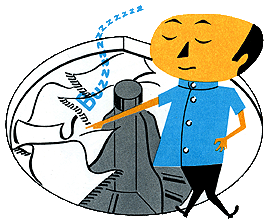|
Thread Number: 46682
Conversion from natural gas to propane |
[Down to Last] |

|
Post# 680298 , Reply# 1 5/20/2013 at 22:57 (3,985 days old) by Kenmore71  (Minneapolis, MN) (Minneapolis, MN) |
||
 | ||
| Post# 680334 , Reply# 2 5/21/2013 at 07:25 (3,985 days old) by sambolina20 () | ||
|
Yes, and again the top burners are perfect, the propane service man checked those and the oven. When you start the oven its a big intense blue and orange but after 30 seconds or so it calms down to a very small blue flame | ||
Post# 680351 , Reply# 3 5/21/2013 at 10:29 (3,985 days old) by Kenmore71  (Minneapolis, MN) (Minneapolis, MN) |
||
 | ||
Post# 680582 , Reply# 6 5/22/2013 at 19:13 (3,983 days old) by combo52  (50 Year Repair Tech Beltsville,Md) (50 Year Repair Tech Beltsville,Md) |
||
Old gas Oven Running Too Hot These older [ before 1960 ] gas oven thermostats are usually modulating designs and in addition to changing and or adjusting the main burner orifice you must make a bypass flame adjustment on the front of the thermostat control for the oven to work properly, otherwise the temperatures will soar above the set temperature.
For the life of me I can not understand why any one would want to cook on propane, it is like cooking on natural gas but twice as bad. It smells worse and costs far more than cooking on electricity and is MUCH more dangerous, especially on an older stove without 100% safety controls on the top burners [ European style ], please be careful. John | ||
Post# 680666 , Reply# 8 5/23/2013 at 14:03 (3,983 days old) by kb0nes  (Burnsville, MN) (Burnsville, MN) |
||

First off, welcome to AW Sam! Hope you find the answers to your questions here.
I think Chris has hit on a pretty valid reason to use gas. Life off the grid means limited power availability. A bottle of LP equals a lot of watts... Looking at Sam's profile it states that "His great grandmother had a stove like this". Its clear this stove is being installed where there isn't natural gas or one wouldn't consider the hassles of LP. Because of the great emotional attachment to this specific appliance it appears that Sam has a very valid reason to consider LP. It is good that you are enlisting the help of the LP professionals to get you up and running safely. Hopefully someone can get the thermostat regulation problem of this vintage appliance ironed out for you! Bottom line is that we can't discount personal preference, we all likes-what-we-likes. For me I dislike gas, unless cooking outdoors. Unless its a commercial range with a big burner there just isn't enough heat. Boiling water takes patience. Years ago I won a bet with a buddy who claimed his gas range would beat my electric in time to boil 6 quarts of water. Even with the slower initial warmup of my electric it still won by better then 8 minutes... It was a quick $20 !! | ||
Post# 680733 , Reply# 9 5/23/2013 at 20:47 (3,982 days old) by combo52  (50 Year Repair Tech Beltsville,Md) (50 Year Repair Tech Beltsville,Md) |
||
Propane vs induction vs resistance electric surface elements Hi Chris and yes welcome aboard, and I hope I wasn't too hard on your choice of having a propane range. And you do have a reasonable reason for not using electricity for your primary cooking, but I did not consider that you might be one of the 1/10th of 1% of Americans that are living off the electrical grid.
Some things to consider about cooking on propane, when 90% of natural gas ranges are converted properly to propane the BTU output is reduced around 20% or so, just look at the specifications for the product.
Resistance electric cooking is very little less and in some cases more efficient than Induction and if you can run an induction hot-plate on solar you can run an electric surface element on solar. I am a huge supported of induction and have used as my primary cook-top for over 25 years here at home, but I also have another 7 resistance surface elements that I enjoy cooking on.
Another mith [ electric is not responsive ] if your electric coot-top element can't go from a rolling boil to a simmer in about 60 seconds you aren't using it correctly.
I would still get a sealed cook-top with 100% safety shutoff if I was going to use propane indoors, I have been in kitchens where the propane fueled cook-top [ non-sealed cook-top ] exploded, propane being heaver than air makes it much more dangerous than natural gas for cooking.
Did you find the instructions for adjusting your thermostats by-pass flame? this should be an easy adjustment if you find the instructions or a tech old enough to remember working on pre 1960 gas ranges. | ||

 Comes to the Rescue!
Comes to the Rescue!